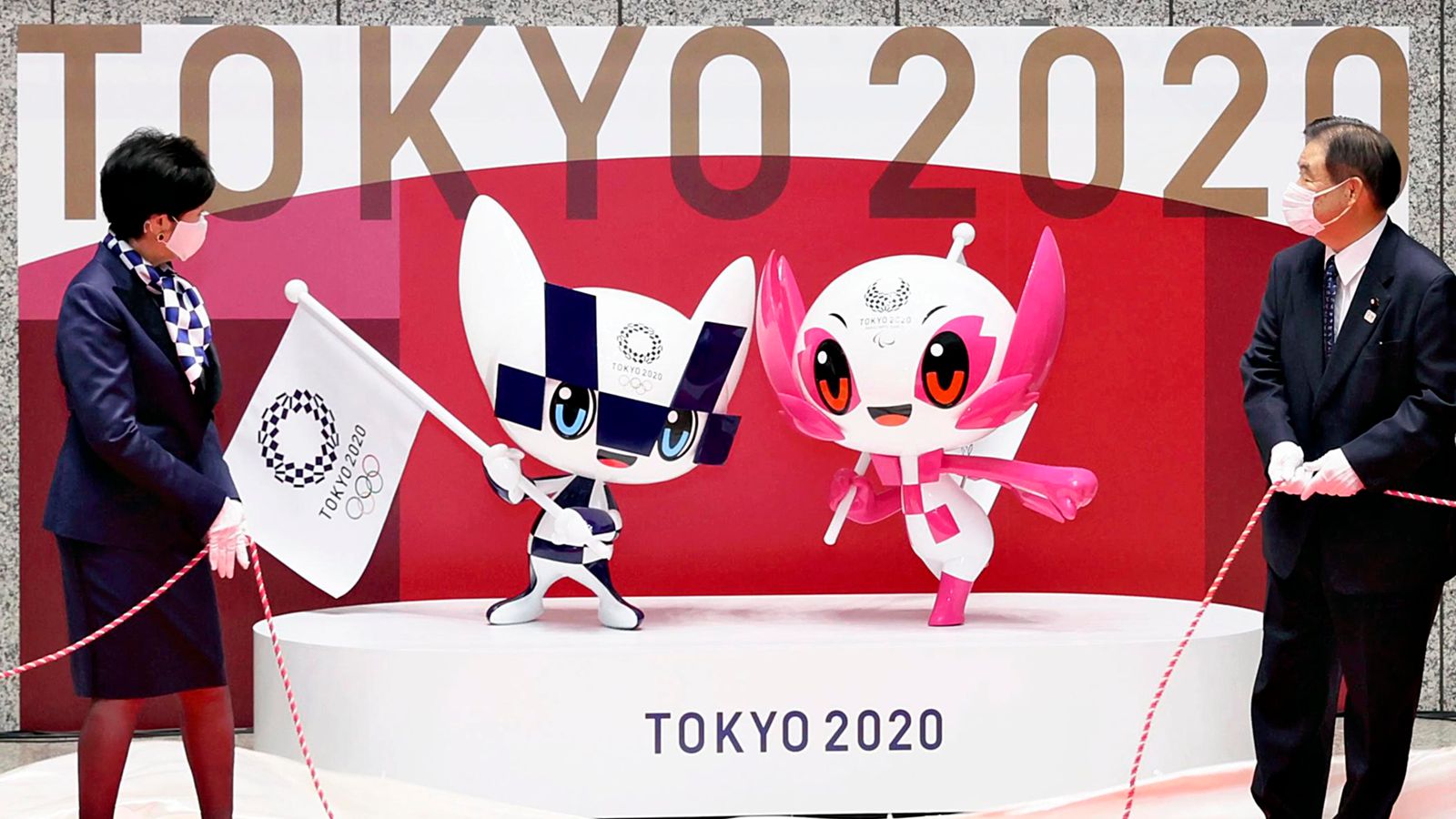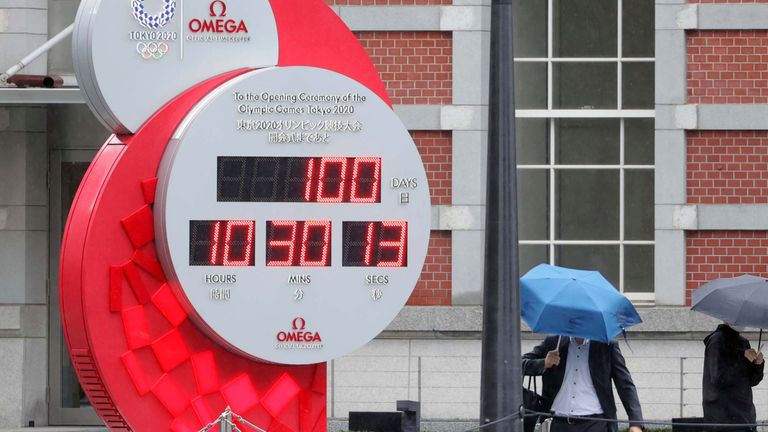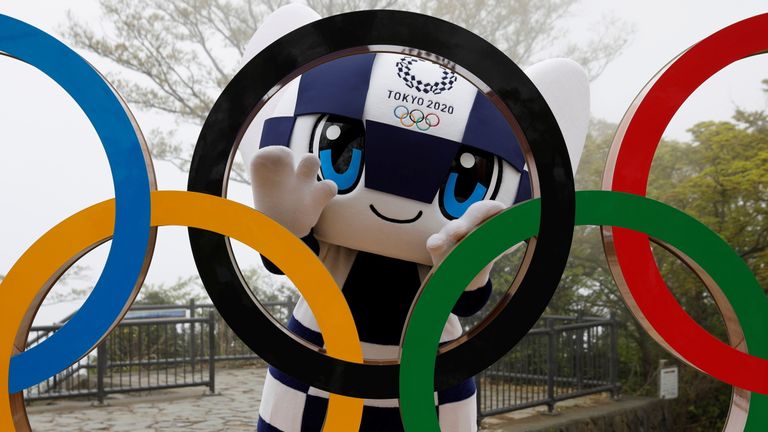The Tokyo Olympics mascots were unveiled today to celebrate the 100 days-to-go milestone amid mounting public opposition to the Games taking place this summer.
But British Olympic Association chair Sir Hugh Robertson said he believed it was not a matter of if the Games happen, but how.
“I’m very confident it will go ahead,” he told Sky News.
“I think the fact they have decided on no foreign spectators, now makes it more likely it will happen. They’re taking the measures necessary in order to enable the Olympics to go ahead safely in July.”
Coronavirus infections are rising in many parts of Japan and the country only began its vaccination programme this week, meaning vast swathes of the nation will still be unvaccinated when the Olympics are slated to begin on 23 July.
A newspaper poll this week indicated that 70% of Japanese people don’t want the Games to go ahead.
“I’m not surprised that the polling figures are like that,” Robertson said, “if you’re a country in lockdown and then somebody proposes hosting an Olympics you’re bound to think that this probably isn’t the ideal.
“It’s also the case that in every single country that ever hosts the Olympic Games, that the public is generally somewhere between hostile and not very keen, right up until the last moment and then it flips about.
“I think when it actually gets right up close to the games the Japanese will want to do what they’re really well known for doing which is lay on a fantastic Games and welcome as much of the world as is safe to do.”
Subscribe to the Daily podcast on Apple Podcasts, Google Podcasts, Spotify, Spreaker
The Olympics was awarded to Tokyo seven and a half years ago because it was considered a safe choice.
Since then a sexism scandal which led to the resignation of the head of the organising committee, a bribery investigation and a pandemic have coloured things differently.
Many experts think the risk to public health is too great to hold the Games, which under the current advice from the Japanese government would see an estimated 90,000 people flocking to Tokyo this summer, including 15,000 Olympic and Paralympic athletes.
“We are seeing sicker people than before, in ICU and the number of people infected surging, very rapidly,” Professor Kentaro Iwata, infectious disease specialist at Japan’s Kobe University, told Sky News.
“It is mainly in the west side of Japan called Kansai area but the east side, including Tokyo also has the increase in the number of people with infection. So, we are in a really critical period.
“I’m very pessimistic in holding the Olympic Games safely,” he added, “Particularly, when people talk about inviting all the audiences domestically, that will be extremely dangerous to have.”
The Olympic torch relay was diverted from the centre of Osaka this week and proceeded largely in private amid rising coronavirus cases in the area.
Athletes are still unsure when they will be able to get into Japan for qualifying events and preparation for the Games.
Mallory Franklin is a world champion canoe slalom racer and will make her Olympics debut in Tokyo as one of Team GB’s best gold medal hopes. She says she is trying to ignore the undercurrent of controversy.
“I’m not actually that engaged with the news, generally, which isn’t great for me but it means I don’t see things like that and I think that it allows me just to stay focused on my training,” she said.
Subscribe to the Daily podcast on Apple Podcasts, Google Podcasts, Spotify, Spreaker
“I wouldn’t do anything differently, I’d still turn up to train and I’d still try and be the best athlete I could be and whether or not the games does or doesn’t happen.”
For many athletes this will be their only opportunity to go to an Olympics, for others it could be their swansong and, amid a whirl of unknowns, there is one certainty; this will be a Games unlike any other.



